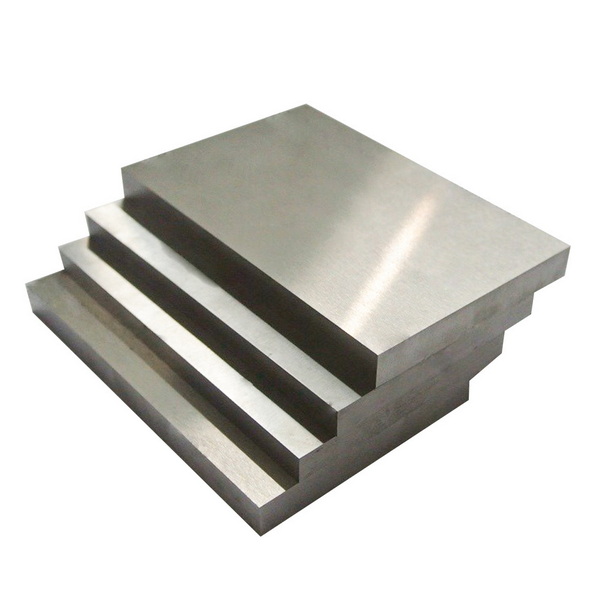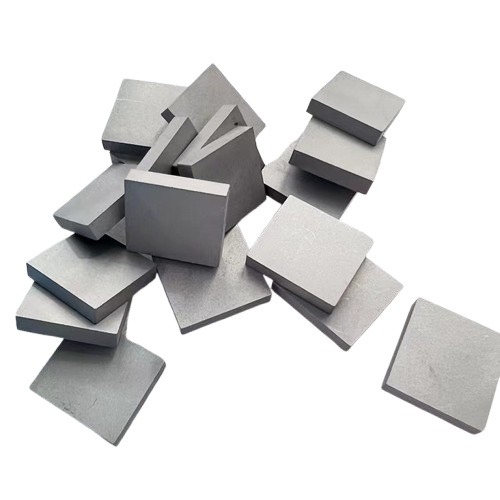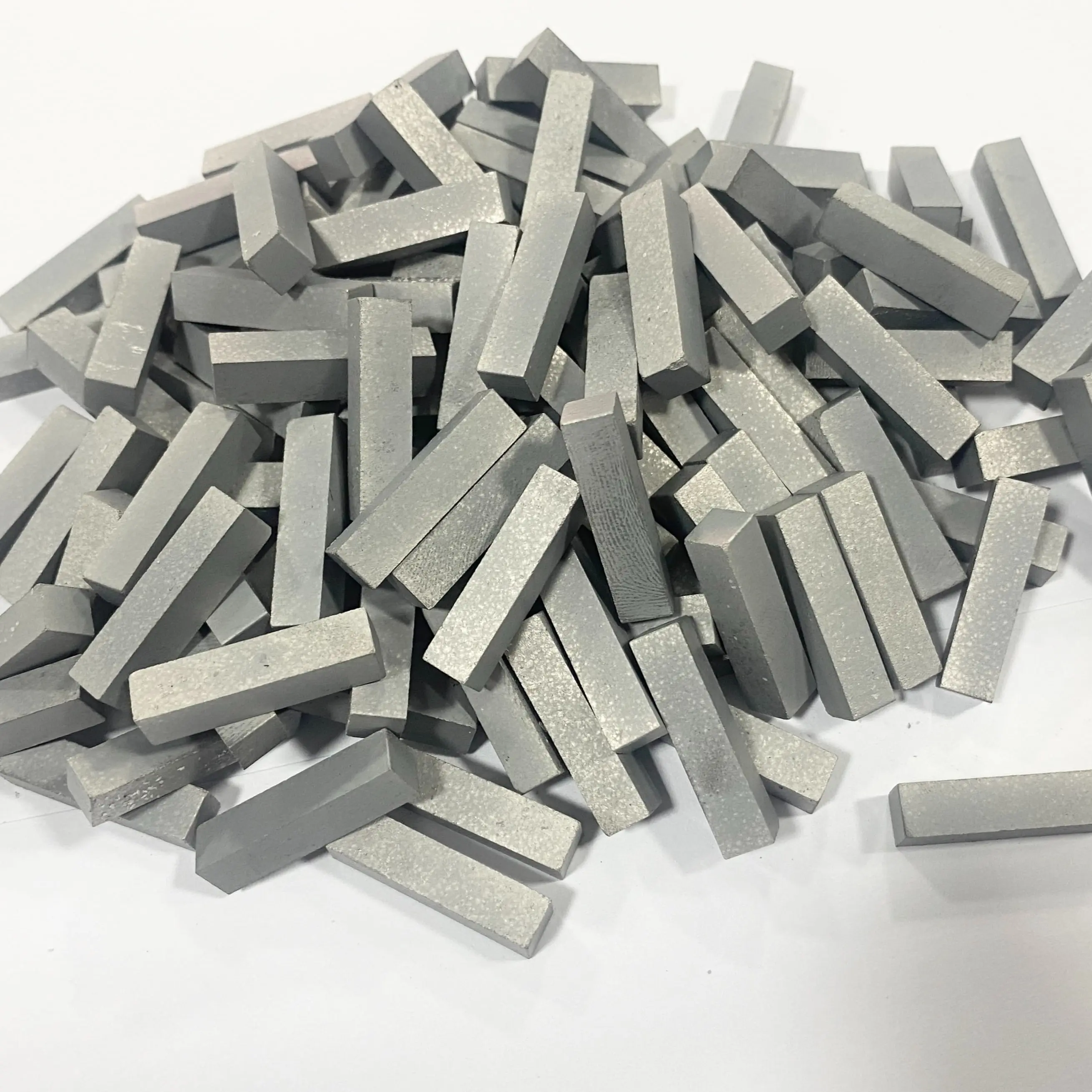Content Menu
● Introduction
● The Role of Carbide Plates in Modern Industry
● Germany: The Carbide Plate Powerhouse
● Notable Carbide Plate Manufacturers and Suppliers in Germany
>> BETEK GmbH & Co. KG
>> AFC Hartmetall GmbH
>> AKS Hartmetaltechnik GmbH
>> Wilke Hartmetall
>> Precision Carbide Germany
>> MILLER GmbH & Co. KG
>> HHT Hartmetall
>> Other Key Players
● The Carbide Plate Manufacturing Process
● Key Applications for Carbide Plates
>> Metalworking and Tool Manufacturing
>> Mining and Construction
>> Automotive and Aerospace Engineering
>> Woodworking and Plastics Industry
>> Oil and Gas Sector
>> Medical Device and Recycling Industries
● Innovation, Sustainability, and Customization Trends
● Choosing the Right Carbide Plate Supplier in Germany
● Best Practices for Importers and OEM Partners
● Conclusion
● Frequently Asked Questions (FAQ)
>> 1. What are the main properties of carbide plates?
>> 2. Which industries rely most on carbide plates?
>> 3. How do German suppliers ensure product quality?
>> 4. Are custom designs and dimensions available?
>> 5. What is the lifespan of a carbide plate compared to steel or ceramic alternatives?
Introduction
Carbide plates, especially those composed of tungsten carbide, are known for their outstanding hardness, wear resistance, and reliability in even the harshest industrial environments. These attributes make carbide plates invaluable across multiple sectors—from metalworking and mining, to aerospace, automotive, and oil and gas industries. Germany, renowned for its engineering precision and industrial innovation, is home to many of the world's leading carbide plate manufacturers and suppliers. This in-depth article spotlights the key players, their technologies, manufacturing processes, and the market dynamics that make Germany a global leader in carbide plates. Read on to discover production innovations, applications, and answers to the most pressing questions about sourcing carbide plate solutions from German suppliers.

The Role of Carbide Plates in Modern Industry
Carbide plates, most commonly based on tungsten carbide, are composite materials formed by blending powdered carbides with a metal binder (usually cobalt or nickel). Their microstructure offers an unmatched combination of strength, toughness, and resistance to abrasion, heat, and deformation. These properties give carbide plates critical roles in industrial applications such as:
- Serving as wear parts in heavy machinery and tools.
- Acting as vital protective linings in the mining and construction sectors.
- Forming cutting, shearing, and shaping tools in manufacturing operations.
- Providing durable and precise parts for aerospace and high-tech sectors.
By minimizing downtime and replacement costs while maximizing equipment longevity, carbide plates are instrumental in advancing productivity and reducing operational expenses.
Germany: The Carbide Plate Powerhouse
The German carbide plate industry stands on a foundation of technological sophistication, quality control, and a culture of engineering innovation. Numerous manufacturers, from long-established global players to niche technical specialists, operate in Germany, serving international OEMs, wholesalers, and equipment manufacturers.
The German market's distinguishing features include:
- Highly automated production facilities ensuring consistent quality.
- Close collaboration between manufacturers and clients for custom solutions.
- Heavy investment in R&D, leading to advancements in coating technologies, grain refinement, and environmentally conscious production.
- Strong export orientation, with German carbide plates found in cutting tools, mining equipment, and manufacturing plants worldwide.
Notable Carbide Plate Manufacturers and Suppliers in Germany
Several major brands and specialized manufacturers define Germany's leadership in carbide plate supply:
BETEK GmbH & Co. KG
BETEK specializes in tungsten carbide products for mining, drilling, construction foundations, and wear-resistant tooling. The company leverages in-house carbide production and strong international logistics, supplying both custom and standard carbide wear parts for a global customer base.
AFC Hartmetall GmbH
Focused on high-precision carbide rods and plates, AFC Hartmetall customizes its products to meet the most demanding requirements. The company's flexibility in cobalt content, dimensions, and grade selection makes it a favorite among tool, die, and mold makers.
AKS Hartmetaltechnik GmbH
AKS prides itself on delivering custom carbide parts down to micron-level tolerances. Its workshop-to-customer workflow allows clients to submit drawings and receive finished components tailored to precise technical needs, supporting R&D and specialty manufacturing.
Wilke Hartmetall
With a robust selection of cemented carbide products, Wilke Hartmetall serves saw blade producers, tool manufacturers, and OEMs through efficient online sales and rapid order fulfillment. Its expertise in custom grade development meets specialized demands.
Precision Carbide Germany
This supplier combines a robust carbide plate product range with technical consultancy. The company works closely with buyers to optimize performance, reduce manufacturing costs, and ensure successful application of carbide materials in tooling and machining.
MILLER GmbH & Co. KG
Renowned for solid carbide end mills and rotary tools, MILLER also manufactures carbide plates and components tailored for high-precision CNC machining environments. The company boasts advanced automation and flexible batch production.
HHT Hartmetall
HHT Hartmetall has more than half a century of experience in general and precision toolmaking. Its range includes ultra-durable carbide components, plates, and wear parts, all engineered for long-term reliability under intense workloads.
Other Key Players
Specialized suppliers like Kannenberg GmbH (wood and plastics tools) and Boehlerit (composite and metalworking tooling) further expand Germany's comprehensive carbide plate ecosystem.
The Carbide Plate Manufacturing Process
Precision and innovation are at the heart of Germany's carbide plate manufacturing. The process involves several sophisticated stages:
Powder Preparation: High-purity tungsten carbide and a metallic binder are blended, often with grain growth inhibitors and other additives for enhanced performance. This stage is critical to ensuring a uniform mixture, which determines final plate properties.
Forming: The homogeneous powder is shaped into plates through techniques such as cold isostatic pressing (for larger or intricate components), uniaxial pressing (for standard plate geometries), or extrusion (for rods and elongated profiles). Meticulous control yields high density and uniformity.
Sintering: Pressed “green” blanks are heated at temperatures up to 1,500°C in sintering furnaces where they densify into solid, high-strength carbide. Correct temperature, atmosphere, and timing are essential for grain size control and achieving optimal mechanical properties.
Finishing: The sintered plates undergo finishing processes, including surface grinding, lapping, EDM (electrical discharge machining), and sometimes advanced coating for enhanced wear and corrosion resistance. Quality assurance at this stage ensures each plate meets tight tolerance and flatness requirements.
Customization and Quality Control: Many German manufacturers offer custom cutting, complex geometries, and even multi-stage coatings. Rigorous inspection, including dimensional checks, hardness testing, and sometimes metallographic analysis, guarantees the delivered product meets or exceeds international standards.

Key Applications for Carbide Plates
German carbide plates serve a vast array of applications due to their durability and adaptability:
Metalworking and Tool Manufacturing
Carbide plates function as inserts for cutting, shaping, forming, and stamping metals. They dramatically reduce tool wear, increase tool life, and enable precise, high-speed production.
Mining and Construction
Used as wear parts on drilling tips, bucket teeth, crushers, and conveyor liners, carbide plates extend the lifespan of critical components exposed to intense abrasion and impact.
Automotive and Aerospace Engineering
Carbide plates are essential in precision molds for engine and transmission parts, as well as specialized cutting and drilling tools for CNC machining of hardened materials. High operating temperatures and strict tolerances in these sectors make carbide indispensable.
Woodworking and Plastics Industry
Many cutting and shaping tools for wood and plastic bear carbide-tipped or carbide-based inserts, ensuring sharper edges and longer tool life, which is especially valued in high-volume industrial operations.
Oil and Gas Sector
In drilling, exploration, and pipeline processing, carbide plates withstand severe abrasive and corrosive conditions, maintaining accuracy and safety in mission-critical equipment.
Medical Device and Recycling Industries
The medical sector benefits from carbide's cleanliness and dimensional stability in applications like surgical blades and instruments, while recycling equipment utilizes carbide wear plates for shredding and grinding machinery.
Innovation, Sustainability, and Customization Trends
The German carbide plate sector continues to evolve with trends such as:
- Advanced Binder Formulations: New binders increase strength, corrosion resistance, and toughness.
- Micrograin and Nanograin Carbides: Achieving enhanced hardness without sacrificing toughness, supporting ultra-precision tools and challenging applications.
- Additive Manufacturing: Emerging in prototyping and short-run production for custom-shaped carbide components.
- Sustainability Initiatives: Energy-efficient sintering, recycling programs for spent carbide, and lower-emission production processes are increasingly integral to German operations.
- Digitalization: Automation and smart manufacturing systems enable traceability, faster design-to-production cycles, and consistent repeatability for high-volume, high-spec products.
- Customer Collaboration: German companies frequently work as solution partners instead of mere suppliers, integrating their knowledge into customer workflows, optimizing tool life, and driving innovation in client product development.
Choosing the Right Carbide Plate Supplier in Germany
When sourcing carbide plates, consider the supplier's:
- Technical Expertise and Adaptability: Look for companies willing to collaborate on special shapes, unique alloys, or advanced coatings.
- Production Capacity and Lead Time: If your business has high-volume requirements or strict deadlines, top German suppliers offer not only quality but also speed and reliability, backed by streamlined logistics.
- R&D and Support: Evaluate the extent of technical support, from initial drawings to end-use optimization and after-sales service.
- Certifications and Traceability: Ensure suppliers meet industry-standard quality management systems (e.g., ISO 9001) and provide full traceability for each batch.
Best Practices for Importers and OEM Partners
For overseas buyers, especially those involved in OEM projects or large-scale production, establishing long-term relationships with German carbide plate suppliers is highly beneficial. Ways to maximize value include:
- Initiating early-stage technical consultations to ensure grades and designs meet your operational goals.
- Requesting material traceability and comprehensive documentation for compliance and performance assurance.
- Exploring bulk order or frame contract options for improved pricing and guaranteed delivery schedules.
- Leveraging the supplier's know-how to optimize tool life and reduce overall manufacturing costs.
Conclusion
Germany's carbide plate industry thrives at the intersection of tradition and technology. Its top manufacturers and suppliers blend century-old metallurgical know-how with cutting-edge R&D, enabling them to deliver products that set benchmarks in durability, precision, and performance worldwide. Whether you are a wholesaler, brand owner, OEM operator, or engineer in need of specialized wear-resistance solutions, sourcing carbide plates from Germany guarantees access to proven expertise, robust products, and first-class service. The ongoing commitment to innovation, customer partnership, and sustainability ensures German carbide plate manufacturers and suppliers will remain at the forefront of the global industry for years to come.

Frequently Asked Questions (FAQ)
1. What are the main properties of carbide plates?
Carbide plates deliver exceptional hardness, outstanding wear and corrosion resistance, and the ability to maintain performance at high temperatures and under extreme pressure. This makes them suitable for demanding industrial environments where reliability is essential.
2. Which industries rely most on carbide plates?
Key industries include metalworking, toolmaking, mining, construction, automotive, aerospace, woodworking, oil and gas, medical device manufacturing, and recycling. Any application requiring durability and precise performance can benefit from carbide plates.
3. How do German suppliers ensure product quality?
German manufacturers employ strict quality management systems, advanced powder metallurgy, and comprehensive testing protocols. Many also offer in-house research, full batch traceability, and technical support to achieve the highest possible standards for their carbide plate products.
4. Are custom designs and dimensions available?
Yes, many German carbide plate manufacturers and suppliers can custom-produce plates according to client specifications, including material grade, thickness, length, tolerances, and unique shapes based on technical drawings.
5. What is the lifespan of a carbide plate compared to steel or ceramic alternatives?
A carbide plate generally lasts significantly longer than standard steel or ceramic alternatives. While the upfront investment is higher, their superior durability, reduced maintenance, and improved equipment uptime offer a more cost-effective solution in the long term.
















